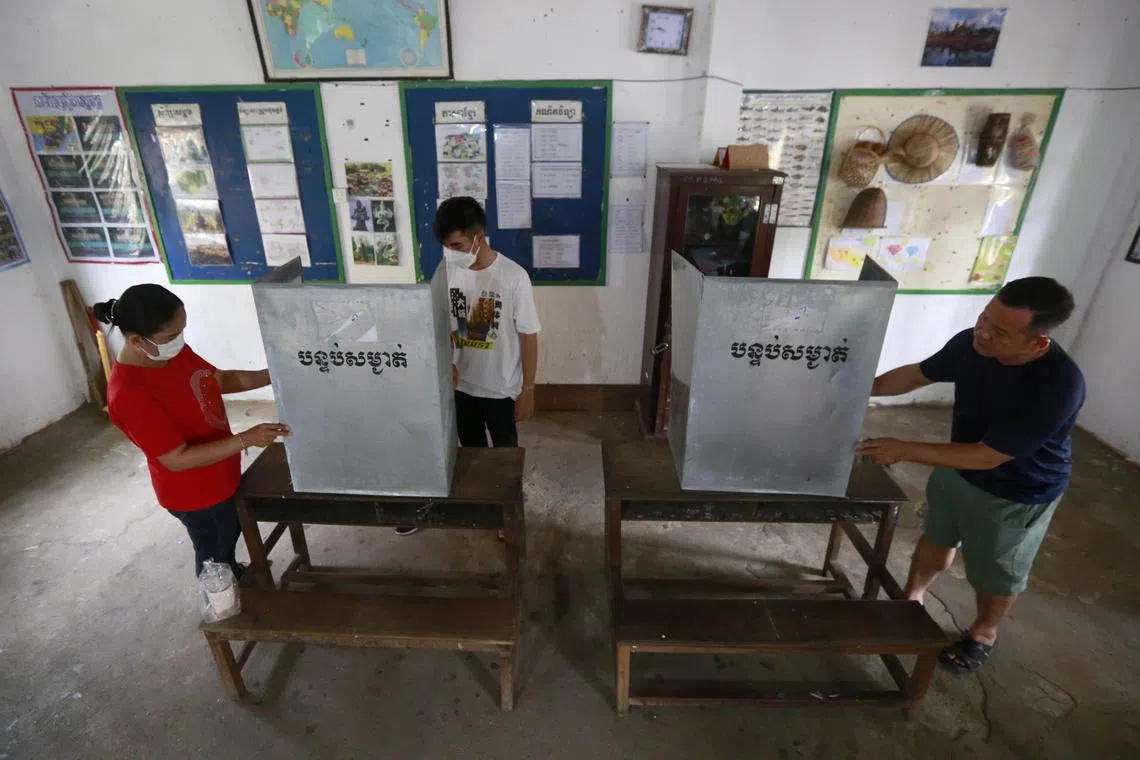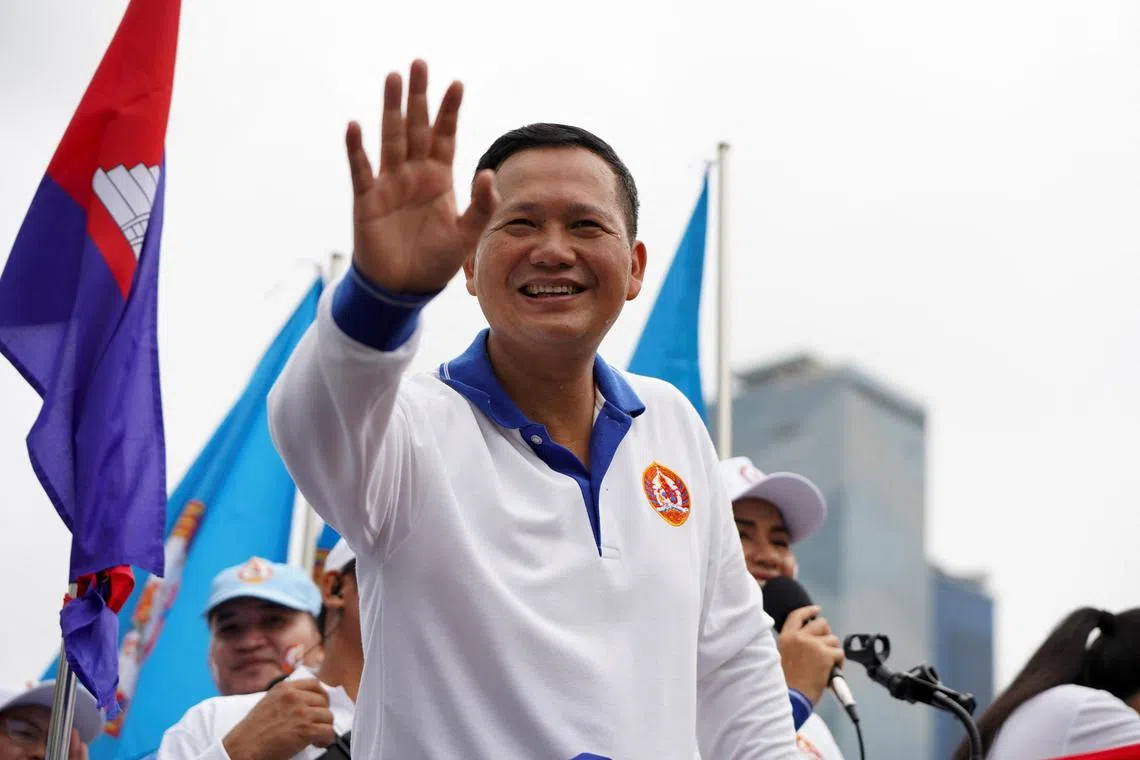What you need to know about Cambodia’s election
Sign up now: Get insights on Asia's fast-moving developments

About 9.7 million of Cambodia’s 16 million people are eligible to vote in the election for a national assembly.
PHOTO: EPA-EFE
PHNOM PENH - Cambodia held an election on Sunday that was almost certain to be won by the ruling Cambodian People’s Party (CPP) of Prime Minister Hun Sen,
Here is what you need to know:
What happened on Sunday?
About 9.7 million of Cambodia’s 16 million people were eligible to vote in the election for a national assembly. Polling stations opened from 7am until 3pm local time. A preliminary result was expected on Sunday evening.
Aside from the CPP, there were 17 parties running, but most were obscure and none had the clout or resources to mount a challenge to the ruling party, which won all 125 assembly seats in the 2018 election. A repeat of that was expected.
What happened to the opposition?
The CPP encountered the biggest challenge to its rule in the 2013 election, when it won less than half of the votes, closely followed by the newly formed opposition Cambodia National Rescue Party (CNRP), reflecting the CNRP’s popularity among the youth and trade unions and some disenchantment with the CPP.
In the following years, the CPP used its influence over the courts and democratic institutions to hobble its rival, culminating in the CNRP’s dissolution nine months before the 2018 election, for its alleged plot to overthrow Mr Hun Sen’s government. The CNRP’s leader was arrested on treason charges.
Large numbers of opposition figures fled into exile and hundreds were convicted of crimes, mostly in absentia in mass trials.
From the CNRP’s ashes rose the Candlelight Party, but its members endured a campaign of intimidation and harassment, according to human rights groups.
The party was disqualified from the election on a technicality over a registration document and, recently, two of its members were arrested for incitement after they urged voters to destroy their ballots.
Is the CPP popular?
The CPP’s ability to maintain peace, growth and stability after the 1970s Khmer Rouge genocide and ensuing civil war remains its biggest selling point, particularly in rural areas where many Cambodians have witnessed a relative transformation in what was once one of the world’s poorest countries.
Under 70-year-old Hun Sen, Cambodia has achieved lower middle-income status, with improvements in health, education and infrastructure. Its textile manufacturing sector, mainly for famous Western brands, has boomed, creating vital jobs, while the economy grew on average 7.7 per cent between 1998 and 2019.
Why was this election so important to Hun Sen?
Mr Hun Sen’s long-running crackdown and his disregard for international concern about the election’s credibility are most likely moves to ensure a smooth path for his eldest son, Mr Hun Manet, to succeed him in what has so far been a carefully calibrated transition of power.
Mr Hun Manet, 45, made his debut in Sunday’s election and needed to win a legislative seat to be eligible to be prime minister.
The election gave him a chance to earn legitimacy with the public, and he had been expected to take over some time during the five-year term, with his father retaining influence by becoming CPP chief in the interim.
Mr Hun Sen had given no timeframe for the transition until last Thursday, when, in an interview with Chinese television, he said Mr Hun Manet could become premier within a month of the election.

Mr Hun Manet, son of Cambodia’s Prime Minister Hun Sen, waving to people on Friday as he campaigned for the Cambodian People’s Party in Phnom Penh.
PHOTO: REUTERS
Who is Hun Manet?
A graduate of the West Point military academy in the United States, Mr Hun Manet has risen quickly through the ranks of Cambodia’s armed forces and has served as head of counter-terrorism, deputy chief of his father’s bodyguard unit, army chief and deputy military commander.
He is highly educated, with a master’s degree from New York University and a doctorate from Britain’s Bristol University, both in economics, in stark contrast to his father, who has no formal education.
But little is known about Mr Hun Manet’s vision for Cambodia. He has kept a low international profile and has rarely given interviews.
The transition will be closely watched abroad to see whether his experiences with British and American education and democracy will lead to a shift in the authoritarian status quo, and improve Cambodia’s testy relationship with the West. REUTERS


